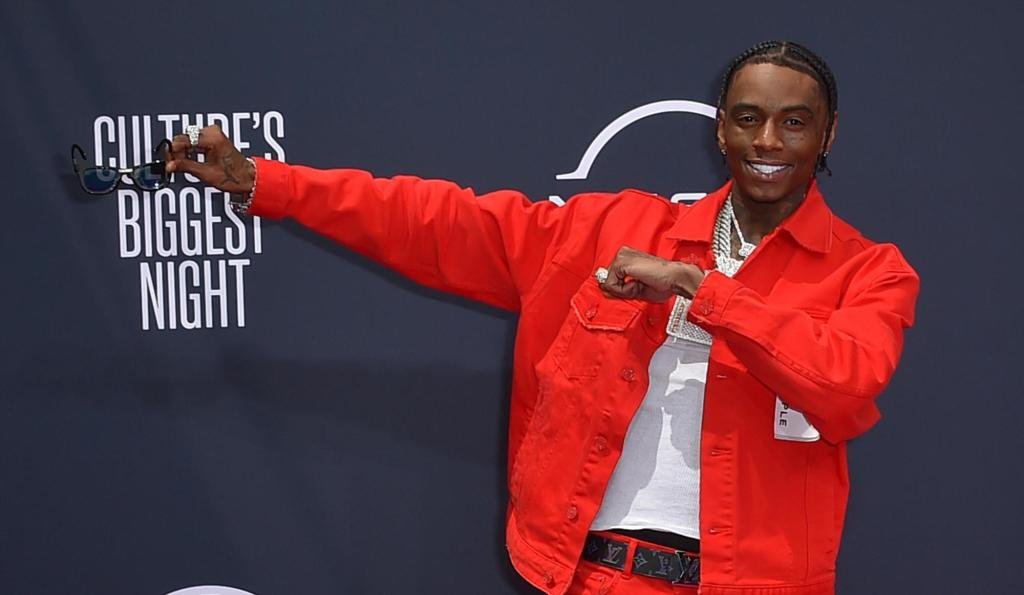Soulja Boy’s Troubling Turn: The Rise and Fall of a Hip-Hop Icon
In the early hours of a brisk Sunday morning in Los Angeles, the flashing lights of police vehicles sliced through the night like a knife. DeAndre Cortez Way, better known as Soulja Boy, found himself seated in the back of a squad car, having been arrested during a routine traffic stop. Suspected of being a convicted felon in possession of a firearm, this incident marks yet another chapter in a tumultuous narrative for a once-revered hip-hop figure whose influence shaped the landscape of modern rap.
The Price of Fame
Soulja Boy, the mastermind behind the viral 2007 hit “Crank That (Soulja Boy),” has experienced the dizzying highs of fame and the harrowing lows of public scrutiny. Having dominated the charts and earned a Grammy nomination, he became synonymous with the rise of internet-driven music trends. However, fame has a way of exacting a price, as evidenced by the recent legal troubles that have clouded his reputation. In April, he was ordered to pay over $4 million in damages after being found liable for the sexual assault of a former assistant, a verdict that reverberated through the entertainment industry.
“The intersection of celebrity and criminality has long captivated public interest,” notes Dr. Tamara Lee, a professor of Media Studies at the University of Southern California. “In cases like Soulja Boy’s, we witness a complex tapestry of cultural dynamics where fame can both elevate and destroy.” This duality reveals itself starkly in Soulja Boy’s life, where the glitz of stardom has regularly collided with personal setbacks and public disgrace.
From Viral Sensation to Legal Struggles
Much of Soulja Boy’s rise can be attributed to innovative use of social media and platforms like YouTube. His viral dance move not only solidified his status as a recording artist but also introduced a generation to the potential of digital fame. However, this success story quickly soured. Recent reports have shown a troubling trend among artists who attain fame at a young age. A study conducted by the National Institute of Youth Culture found that 67% of young celebrities demonstrated signs of psychological distress, often leading to erratic and self-destructive behavior.
- Loss of Privacy: Constant media scrutiny can drain artists emotionally.
- Substance Use: Many young stars turn to drugs or alcohol as coping mechanisms.
- Financial Strain: As seen with various artists, mismanagement of earnings can lead to economic instability.
Experts argue that the pressures of fame can exacerbate existing vulnerabilities. “Many young artists enter the industry with limited life experience,” explains Dr. Samuel Tracy, a psychologist specializing in celebrity culture. “The pressure to perform coupled with public criticism can contribute to a downward spiral.” For Soulja Boy, it appears that both his brush with the law and recent financial repercussions may stem from an environment that has become increasingly toxic.
The Broader Impact on Hip-Hop Culture
The arrest of Soulja Boy also raises questions about the portrayal of hip-hop artists in media and society. Historically, the genre has been plagued by stereotypes associating it with violence and criminality. Yet, hip-hop culture has also served as a powerful vehicle for expression and social commentary. “While incidents like this reinforce negative stereotypes, they also provide an opportunity for critical dialogue about the roots of these issues,” notes cultural critic Maya Johnson.
The implications extend beyond individual cases; they reflect a systemic problem within the industry. “Misogyny, racial bias, and socioeconomic factors are deeply entrenched in the fabric of hip-hop,” adds Johnson. “Artists like Soulja Boy are products of their environment, and their choices cannot be viewed in isolation.” The link between socioeconomic status and criminal behavior is well-documented, with studies indicating that economic hardship can lead to increased likelihood of legal troubles.
Looking Ahead
The future for Soulja Boy remains uncertain as he navigates the consequences of his recent arrest and ongoing legal battles. While his legacy in music may be cemented, the trajectory of his personal life suggests a struggle for redemption. For many, his story serves as a cautionary tale about the fleeting nature of fame.
“Artists need to be equipped with the necessary resources to handle fame properly,” says Dr. Lee. “Substance abuse programs, mental health support, and financial education are crucial components for long-term success.” As Soulja Boy’s saga unfolds, it may be a moment for both the entertainment industry and society to reexamine how we engage with the stars we elevate.
In the end, the narrative of Soulja Boy encapsulates a larger discourse about responsibility, accountability, and the human experience in the fast-paced world of celebrity culture. While his story is a blend of triumph and tribulation, it also invites deeper reflection on how we perceive and relate to those who entertain us. As the latest chapter closes on this hip-hop icon, it remains to be seen whether he can reclaim his narrative and redefine his legacy.





